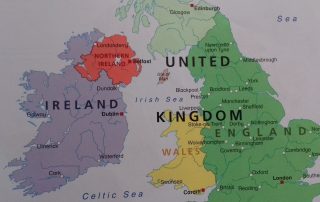How far can the Northern Ireland Protocol limit Brexit’s economic damage?
Photo credit: Albert Bridge (Wikimedia Commons/ CC BY-SA 2.0) The Brexit project entails much collateral damage. The most prominent potential victim of UK departure from the EU to date – though others will no doubt become increasingly difficult to ignore – has been the island of Ireland. [...]











